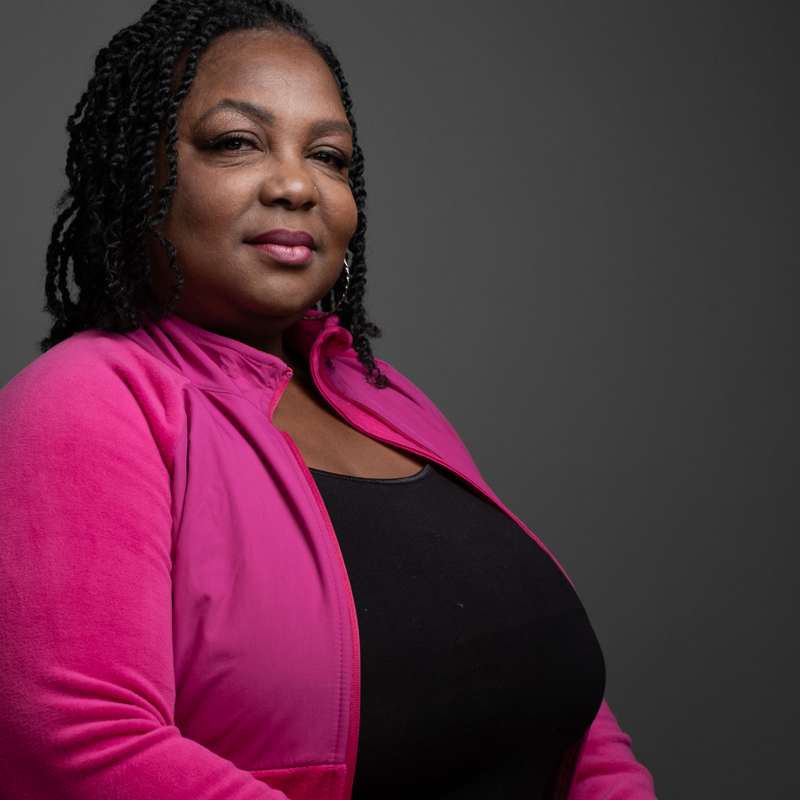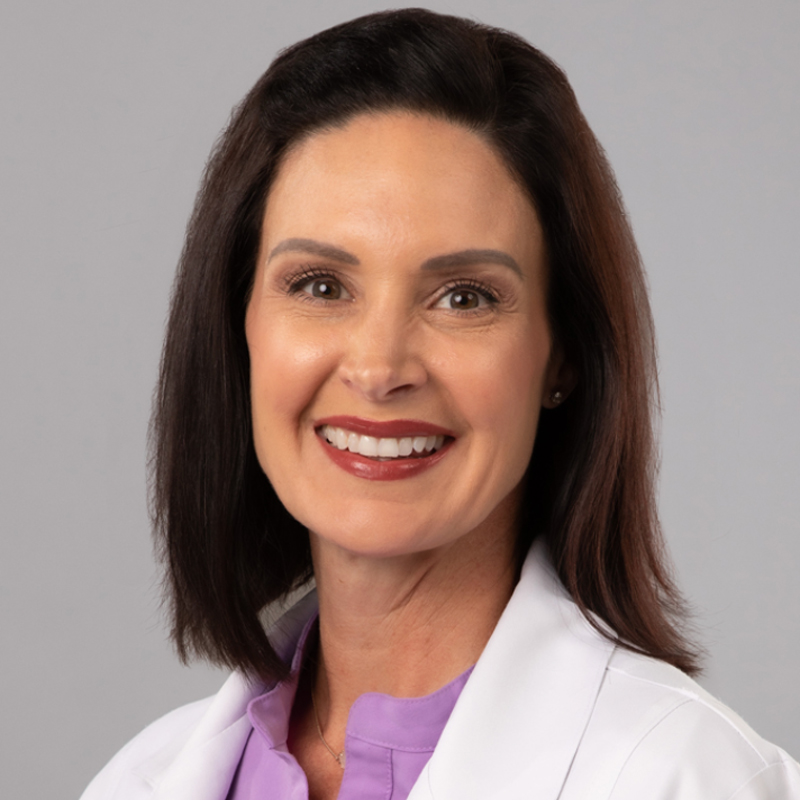THE TEA | September 2023
Everything You Wanted to Know About Menopause
Hello, I’m Mandy Burton, and I’m so glad you’re here. I specialize in urogynecology and am also a certified menopause practitioner. I have an office at Baptist Health in Med Towers 1 in Little Rock. For 25 years, I’ve dedicated myself to all aspects of women’s health. I have been fortunate to help women as they navigate the changes their bodies go through in all seasons of life. Menopause can be a challenging season. Because women spend 40% of their lives in menopause, I desire to help women manage the symptoms menopause brings.
I’m fortunate to be part of Dr. Patrick Lang’s urogynecology team. Together, we address various pelvic disorders, and I am also pleased to educate and assist women transitioning into menopause. If you’re over 40 and have questions or concerns about what this means for you, I’m here to help guide you through the best treatment options – options tailored just for you. Please know you’re not alone in this journey.
What is Perimenopause/Menopause?
First, I’d like you to know that perimenopause is an entirely natural part of a woman’s health journey. It’s a sometimes not-so-gentle transition from your reproductive phase to your final menstrual period. In the perimenopausal years, usually the seven years before the final bleeding cycle, it is not uncommon to experience specific changes. Some women might notice hot flashes, occasional sleepless nights, difficulty falling asleep, anxiety, discomfort during intimacy, vaginal dryness, or moments of feeling foggy.
Menopause occurs when the ovaries reduce their estrogen production and eventually go on a permanent vacation. The textbook definition is 12 months and one day without a period. Menopause is part of the natural aging process. However, it can be brought on in some cases due to circumstances like surgical removal of the ovaries, chemotherapy, or premature ovarian insufficiency. Some women are thrown into a tailspin of symptoms during this time. I want you to be educated that although this is a natural progression of life, you don’t have to suffer through it. I’m here to reassure you that I’ll help guide and support you every step of the way.

How do you know if you are going through menopause?
Every woman’s journey is unique and powerful in its own right. While the milestone of menopause is often marked by a year without a period, each woman’s timeline can be different. On average, many women naturally transition into menopause around 52. However, it’s common to start feeling symptoms several years before then. Some women even have early signs of menopause as early as around age 40. This is termed ‘premature menopause’. And if it happens a bit later, after 54, we call that ‘late menopause’. Remember, there’s no right or wrong age – your body has its unique timeline, and I’m here to support you in this journey.

My main goal is to get my patients to feel like themselves again.
What is treatment like?
First and foremost, your well-being is my top priority. Often, women seek the help of their gynecologist or family doctor to help identify if they are transitioning into menopause. A blood draw is often done to test hormone levels.
As an APRN who specializes in menopause treatment, my approach is a bit different. I believe in treating the complaints and not just the numbers from a test. It’s important for me to understand your medical background fully. I’d like to be aware of any past gynecologic surgeries, your daily habits (healthy and unhealthy) and what symptoms you’ve been experiencing that might point to perimenopause/menopause.
You see, menopausal symptoms arise from shifts in estrogen levels. While many people are concerned about taking estrogen, thinking it might cause cancer, the reality is that estrogen plays a crucial role in maintaining our bodies’ daily balance. Women have estrogen receptors from the top of their heads to the bottom of their feet. I always prioritize your symptoms and align them with an individualized treatment plan. There are hormonal options as well as non-hormonal options. Together, we choose what is the best fit for you.
My main goal is to get my patients to feel like themselves again. Ideally, we would like to introduce hormone therapy within ten years of one’s last period. Why? Because it can offer protection against numerous health concerns. Estrogen replacement can decrease a woman’s risk for cardiovascular disease, diabetes, dementia, and osteoporosis and even reduce the risk of colon cancer by 30 percent. Some studies show that if a woman is diagnosed with breast cancer, she has a better survival rate if she has taken postmenopausal estrogen. Some research even suggests it might add a few more healthy years to your life. Above all, the benefits of hormone therapy, in most cases, should be outweighed against any risks, aiming to enhance your overall well-being and quality of life.
Remember, our journey together is about understanding and making decisions that best suit your needs.
How can you make this life transition easier?
Talking about menopause can sometimes feel intimidating, but I genuinely believe in creating a safe space for these conversations. Feeling a tad nervous is natural, especially during your first visit. Yet, I’ve found that by the time we wrap up our discussion, many leave feeling reassured and empowered. My goal is for you to feel at ease with the changes your body is experiencing and to remind you that here at Baptist Health, you’re not alone – you have a team that genuinely cares about your well-being.
I deeply cherish my role in guiding and supporting individuals like you. And to ensure I offer the best care, I’m always eager to learn about you and your needs. That’s why I dedicate ample time, especially during our first meeting, to understanding your unique story and medical history. It helps us craft a treatment plan tailored just for you. And remember, our journey together is built on persistence and adaptability. If a particular approach isn’t working as we’d hoped, we’ll pivot and explore new strategies together. Your well-being is our shared mission.

Can I come see you?
If you’re experiencing menopausal symptoms or just curious about the changes in your body, please see me for a consultation. There’s no need for a referral from your primary care doctor or gynecologist to chat with me, although a referral might be required for insurance matters.
Remember, while our bodies evolve and change, our commitment to your well-being remains steadfast. Here at Baptist Health, we aim to equip you with knowledge and heartfelt support, ensuring you feel confident and cared for on this journey.
“As a provider, my goal is to make patients feel empowered. Giving each patient knowledge about their diagnosis will allow them to make informed decisions in their care. I’d love to work together to make you feel better, faster.”
Mandy Burton, MSN, APRN, FNP-C, has more than 20 years experience as a women’s health registered nurse. She has cared for women during all stages of life. Burton most recently worked as a pre-op nurse at Baptist Health Medical Center-Little Rock. During that time, she cared for patients with a wide variety of diagnoses including oncological surgeries, mastectomies, hysterectomies, transplants, robotic assisted, and laparoscopic surgeries.
Outside of work, Burton enjoys spending her time watching sunsets, boating, water skiing, and plays Pickleball. She also enjoys spending time with her family.
“I especially love listening to my husband’s ‘dad jokes’ and watching our teenagers roll their eyes as a result,” she said.
